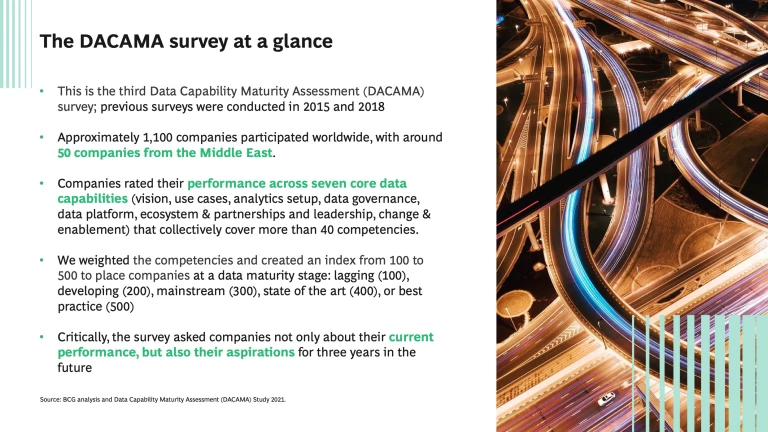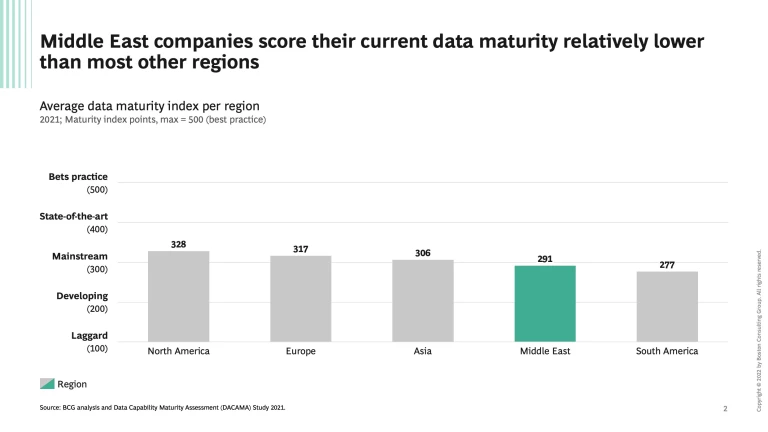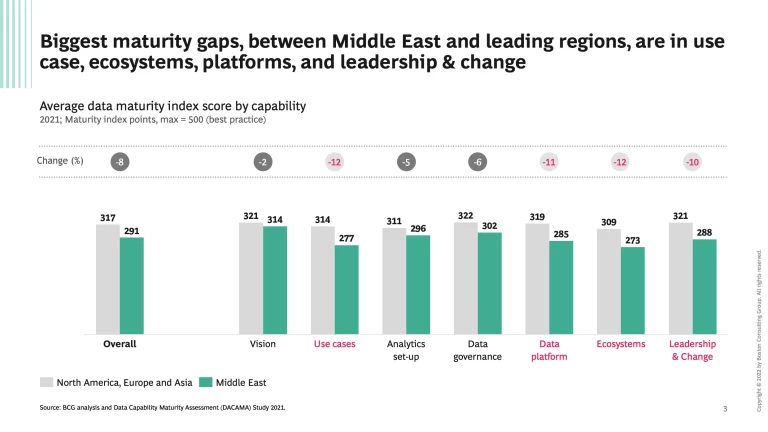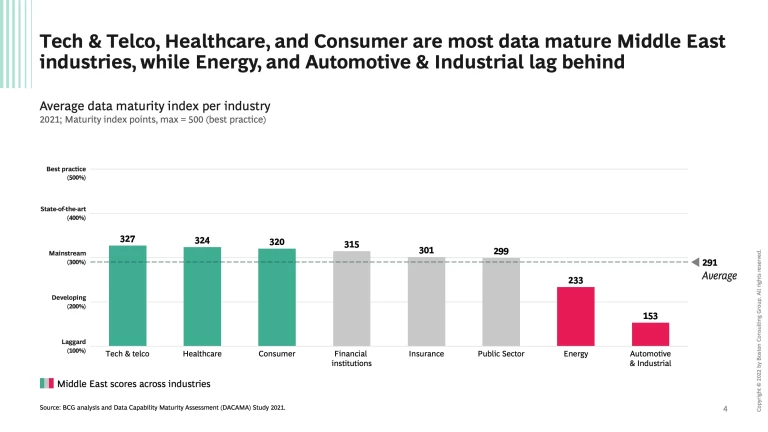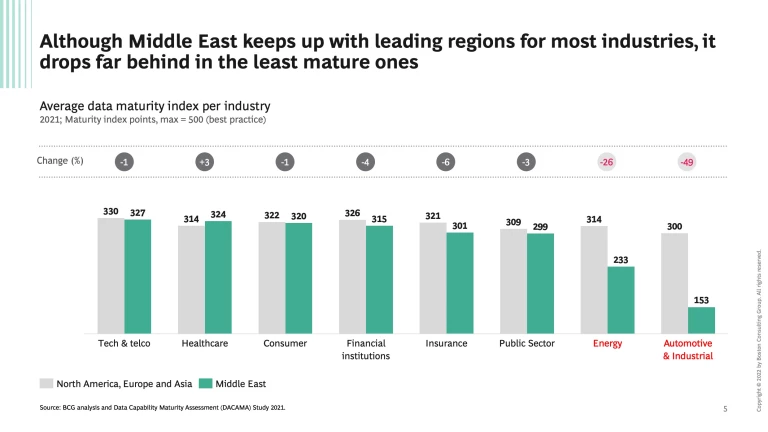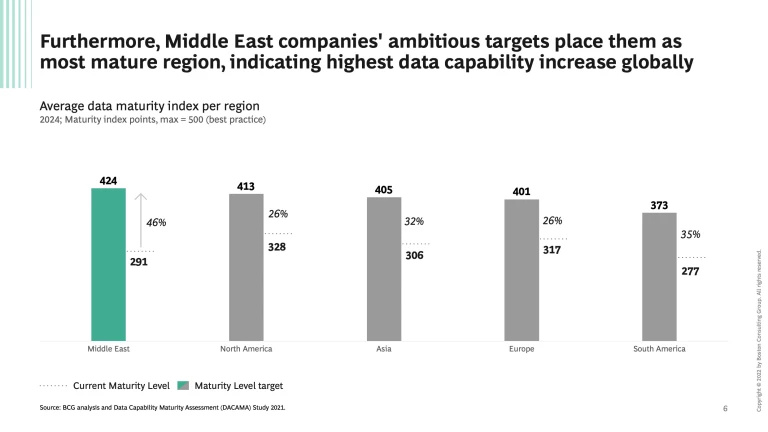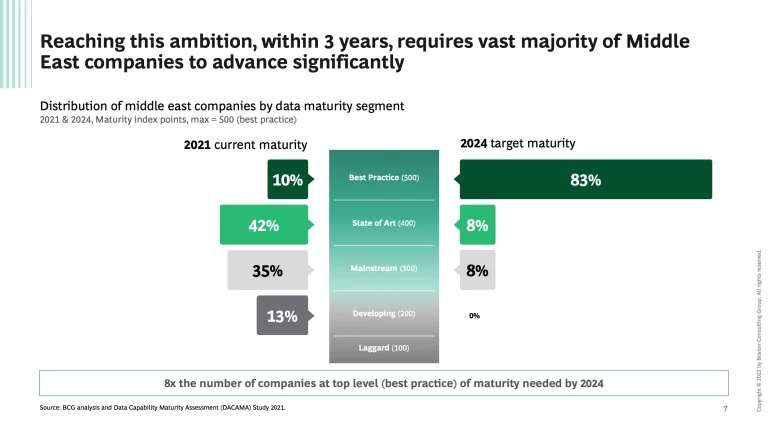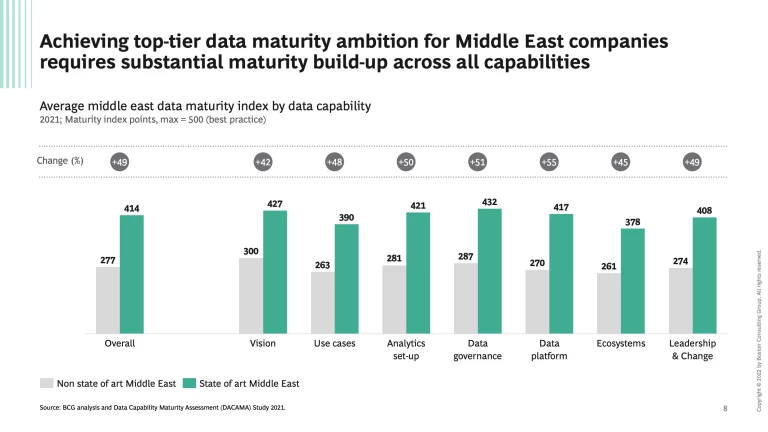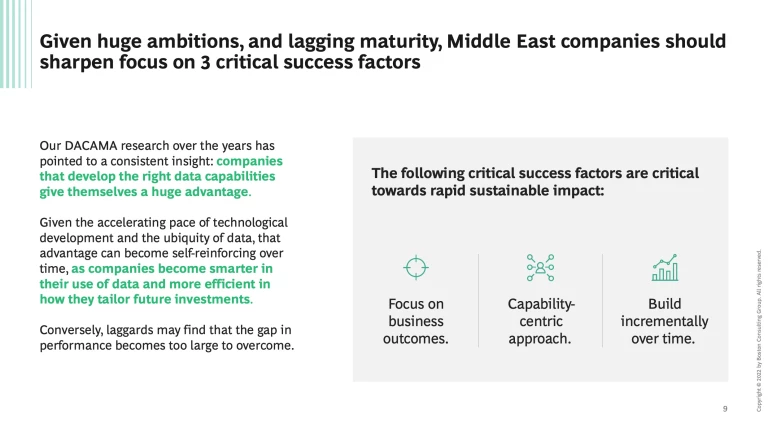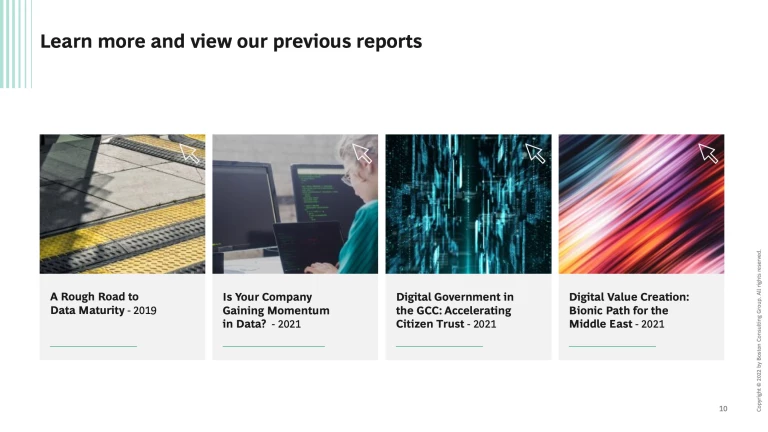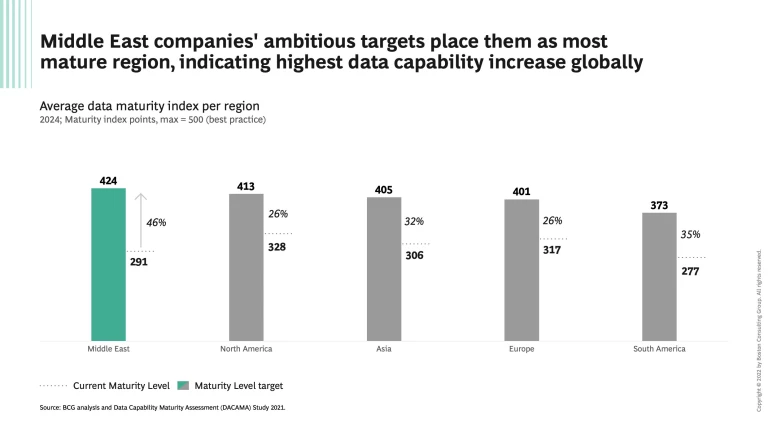The data maturity trailblazers are well-known. With names like Amazon, Alibaba, and Google, they have learned and applied key lessons in reaching data maturity. They understand the need for data to be weaved throughout their organizations and become part of their decision-making processes. As mature data capability is essential to designing organizations, processes, and products, our recent survey shows that Middle East companies are aiming to match, if not surpass, the trailblazers in data maturity.
The focus on data maturity is apparent from participants in our third survey, which acknowledged data maturity levels that are lower in the Middle East than in most other regions. For example, on a scale from 100 (laggard) to 500 (best practice), the Middle East scored a 291. A ranking that is a little behind North America, Europe, and Asia and slightly ahead of South America.
Generally, regional companies keep pace in more data-mature industries—technology, telecom, healthcare, and consumer—but is behind in its less mature industries. For example, the energy industry has a way to go to reach developing status, which is almost 30% lower than other regions. Automotive and industrial companies are in weaker positions still.
Aiming at 2023 and beyond
Companies in the region aspire to reach their ambitious targets and do so within three years. When met, these targets will place the Middle East at the forefront of “most mature regions” and at top global best practices levels.
Clearly, it is an ambitious undertaking, requiring most Middle East companies to make significant advances. In our latest survey, we found that 10% of Middle East companies had reached top maturity ‘best-practice level’, 42% and 35% were in the mainstream groups, respectively, and 13% were at the developing level. To reach Middle East companies stated 2024 ambition would require 8-times the number of companies achieving the top level ‘best-practice’ maturity.
Taking the right approach to data capabilities
Given the accelerating pace of new technologies and data, and the rapid global focus on data maturity, companies must first ensure correct approach to data capabilities, —one that becomes self-reinforcing over time. It requires companies to become smarter in their use of data and more efficient in focused future investments. Global experience shows three factors are critical to success:
- Focus on business outcomes. Data capabilities are a means to an end, not a goal. Identify business problems and use-cases to unlock value.
- Apply a capability-based approach. Invest in the core data capabilities: overarching vision, use cases, analytics setup, data governance, data platform, ecosystem & partnerships and leadership, change & enablement.
- Build incrementally. Build data capabilities over time in a deliberate, steady manner. Adopt an agile mindset of test, learn, and improve.
Follow the trailblazers
Data maturity is the next top-priority strategic agenda item as companies worldwide continue the pursue higher data maturity scores in order to grow and meet their business models and commercial ambitions. As indicated by our recent survey, nowhere is data maturity more important than in the Middle East as companies tend to be data competitive in some areas but data lacking in others, and there is a material gap compared to global best-practices. Success in the region will require a comprehensive, bold but balanced approach, to indeed become data maturity trailblazers.


